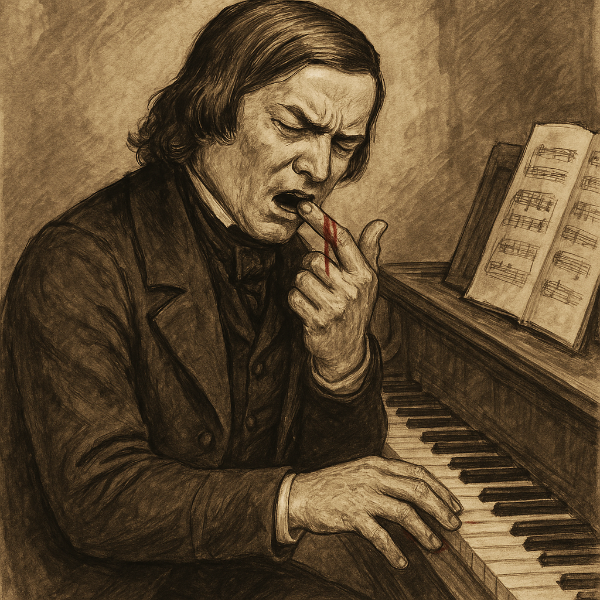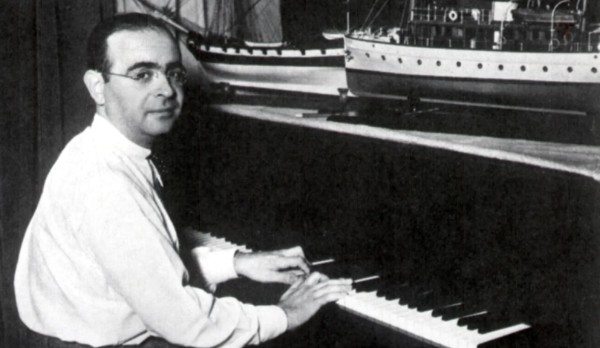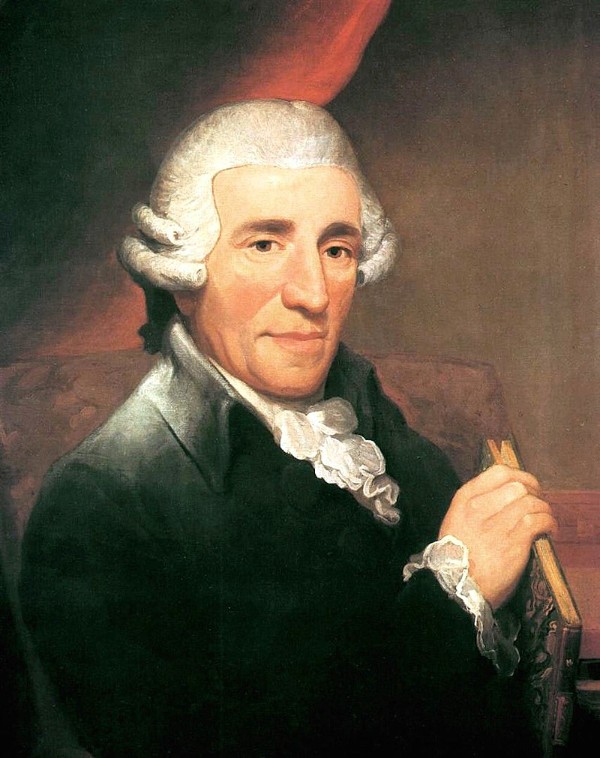Throughout the history of music and particularly Western classical music, the piano has taken its position as the mother of all instruments. For many decades, it was common for households to have a piano in their living rooms, and many amateurs would learn it from a very young age, too. For composers and performers, it is an instrument one cannot avoid — in fact, few are the composers who have ignored it, and when they have the result has often been very unique and distinct. For most composers, it is the primary composing tool, whether they improvise directly on it or use it as a translating tool. Some have used it as a way to express their ideas, whilst others have embraced it fully and through this, pushed the instrument to progress. Let’s have a look at some of the most significant piano composers of the past centuries.
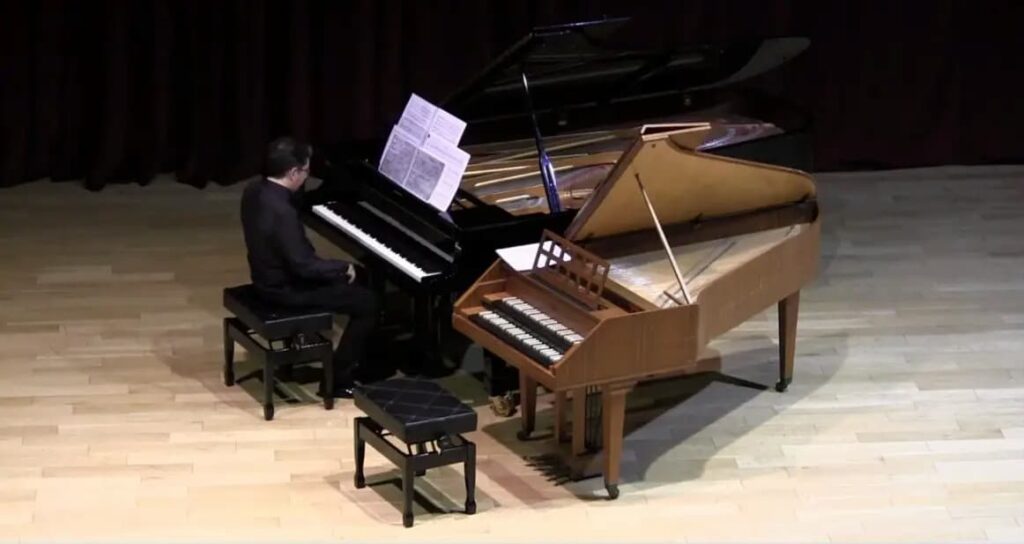
A piano and a harpsichord side by side © digitalpianothebest.com
Bach did not play the piano as we know it, as it had not been invented during his lifetime. However, not mentioning Bach in the role and importance that he has taken in shaping the history of piano would be an unforgivable omission. If he was forgotten for many decades after his death — and it is only thanks to Mendelssohn that he was brought to the forefront of music — to this day, no composer has ever denied the influence Bach has had on music. In many ways, he has created the book of vocabulary and grammar for Western keyboard music.
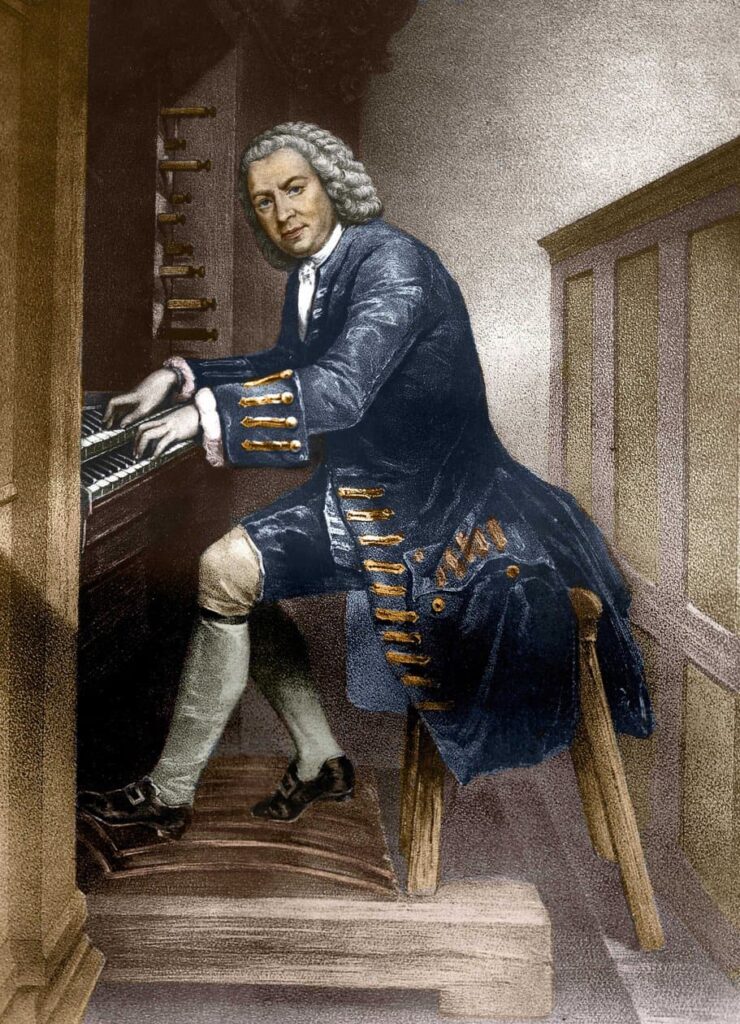
Johann Sebastian Bach playing the organ, c. 1881
A natural successor to Bach is, of course, Mozart, whose repertoire for piano is immense — and the participation in the development of the piano sonata a cornerstone of his career. He has participated in standardising much of the piano vocabulary, as well as the approach to it — the separation of accompaniment and melody for instance, is much clearer and defined in Mozart’s music than in his predecessors’ where musical lines had a tendency to meet and cross. Mozart’s use of pianistic devices is a prelude to the romantics’, and many have tried to imitate him or use his vocabulary, until today.
Including Beethoven only makes sense in that he is the first composer in the history of Western classical music to have broken from tradition in such a strong and bold way. And of course, this has applied to all his piano music, which has paved the way for all future composers. The incredible testament that his thirty-two piano sonatas are not only a witness of his life and its evolution but an indicator of the direction that piano music would take in the century following their creation, including its boldness.
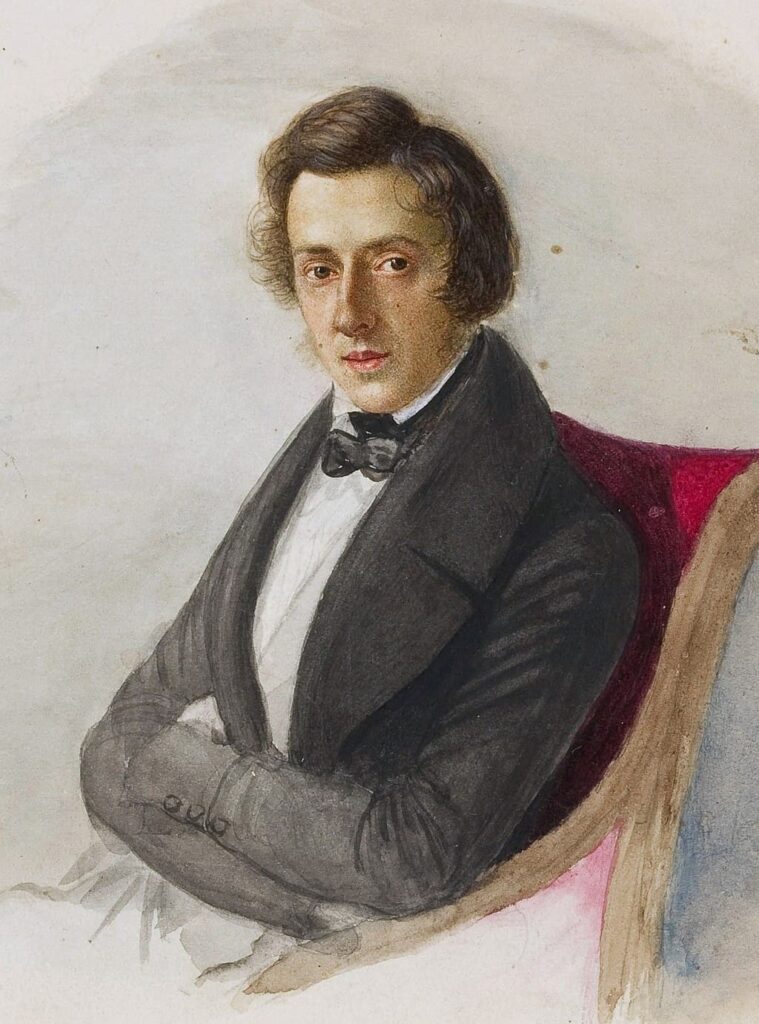
Portrait of Frédéric Chopin by Maria Wodzińska
For most, when one mentions the piano, one thinks of Chopin. And it would make sense to start with him, although he only appears midway through the history of the piano. And if there was a before and an after Chopin, Chopin would not have existed without the ones that preceded him, and of course, the one who followed and ensured his reputation would grow. Therefore, alongside Chopin, one should not ignore Liszt whose contribution to the piano is as great if not greater. Liszt however, has not limited his output to the piano only, and is even more important in his contribution to the harmonic language — and how he precedes Wagner and to some extent Schoenberg. He was more than his Polish counterpart, a real revolutionary.
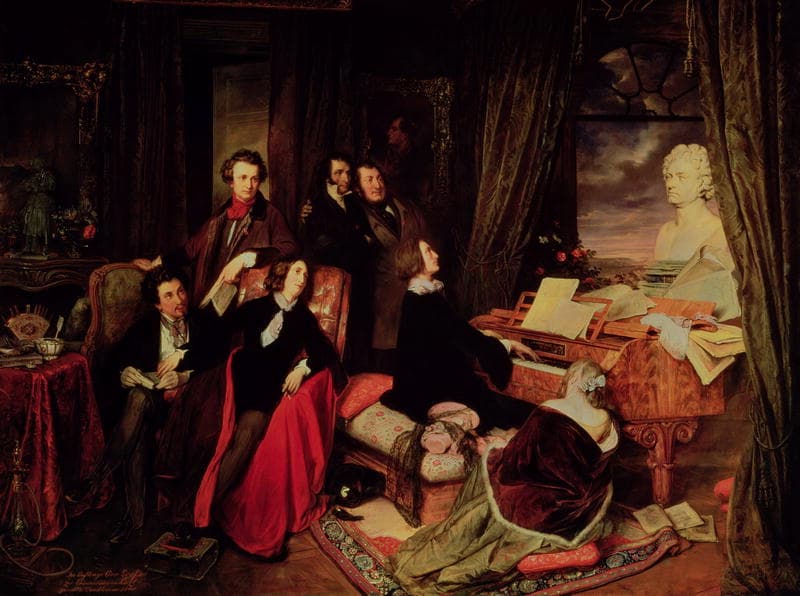
Liszt at the Piano © leadingmusicians.com
If one mentions Wagner and Schoenberg, then it is of course natural to mention the missing link between these two composers. If Debussy is well-known for having changed the face of music history, it is mainly through his approach to composing for piano. Such orchestral writing would not have been possible had he approached the piano differently. Using the emotional and symbolic devices put in place by his predecessors, Debussy allowed the piano to break from any musical limitations and transform it into some of the most expressive instruments. Debussy was strongly influenced by Ravel and Satie, as well as many Russian composers, including Mussorgsky.
Claude Debussy – Etudes (1915)
A composer we often forget to mention when it comes to the piano, is Cage whose contribution to the piano happened in its philosophical approach rather than its technical. Cage broke the piano out of its own shape and sound, redefining its possibilities. With Cage, prepared piano evolved and allowed the American minimalist and European post-minimalist movements to exist. Last but not least, if one has mentioned Cage, then it is only natural to mention Schoenberg, who if not for the piano only, has allowed the mind to think differently.
John Cage – Sonata V (from Sonatas and Interludes) – Inara Ferreira, prepared piano
Of course, this article is non-exhaustive — and many other composers have focused on the piano as a composing and creative instrument, and have allowed it to progress to the status it has today. A few names: Scarlatti, Clementi, Czerny, Schumann, Satie, Scriabin, Rachmaninoff and yes perhaps even Einaudi — to the quality that his music has been focused so much on the piano as a central voice.
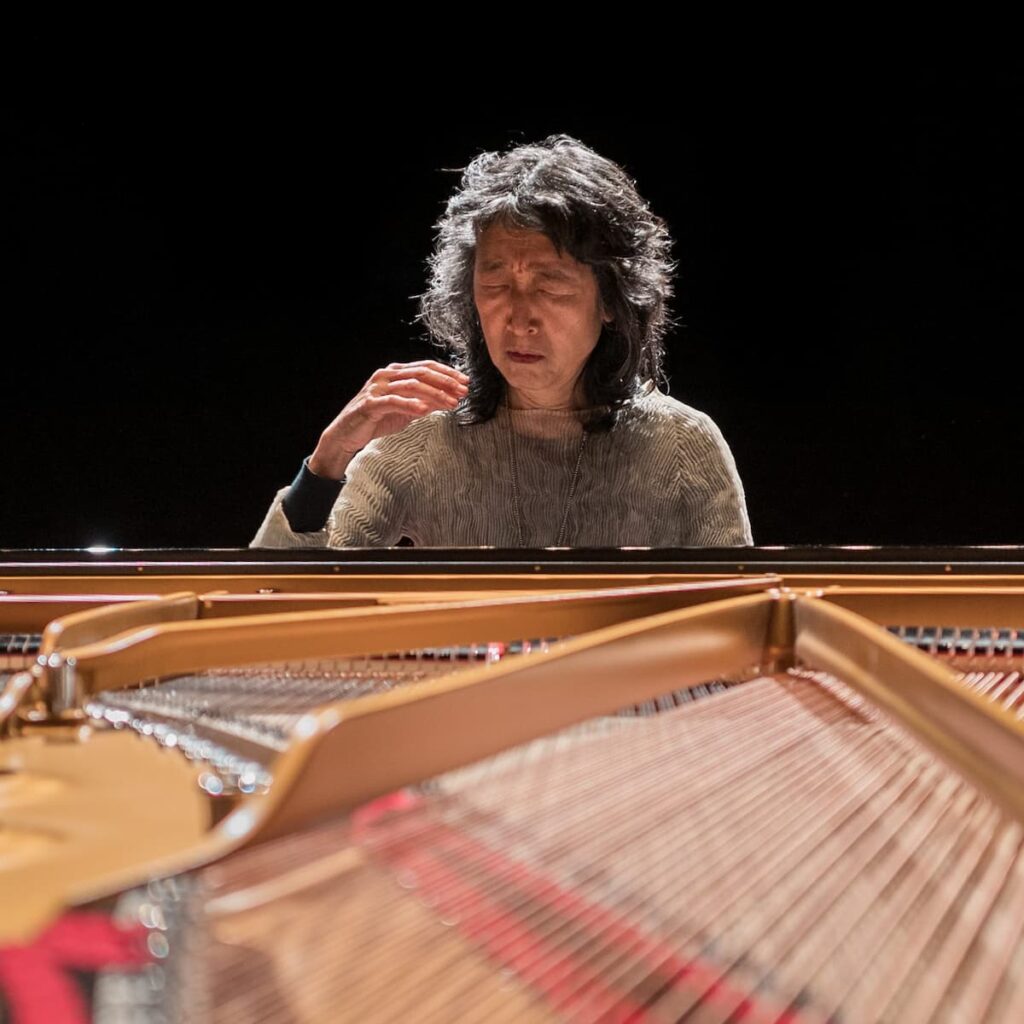
Mitsuko Uchida © Geoffroy Schied
There have been many other articles looking at why the piano has been so central to Western classical music, and it is through that in its construction, it is an almost perfect instrument, and therefore it is no surprise that it has taken such a place. However, one must admit that this instrument is quintessentially European, and in other parts of the world, it is often not the piano which is the main tool for expressing ideas. In most of the American continent, it is often through the medium of plucked string instruments — particularly the guitar —, as well as in other parts of the world, such as the Middle East and Asia. However, in its more recent history, the participation of East Asia has been more and more important. During the 20th century, the Suzuki method, initially created for violin, has been developed for the piano, amongst other developments, this has led to this region of the world to embrace the Western instrument. Today the number of successful Asian pianists is immense: from Mitsuko Uchida to Yuja Wang, Lang Lang, Toshiko Akiyoshi and Hiromi Uehara, and these are only the most well-known!
For more of the best in classical music, sign up for our E-Newsletter

